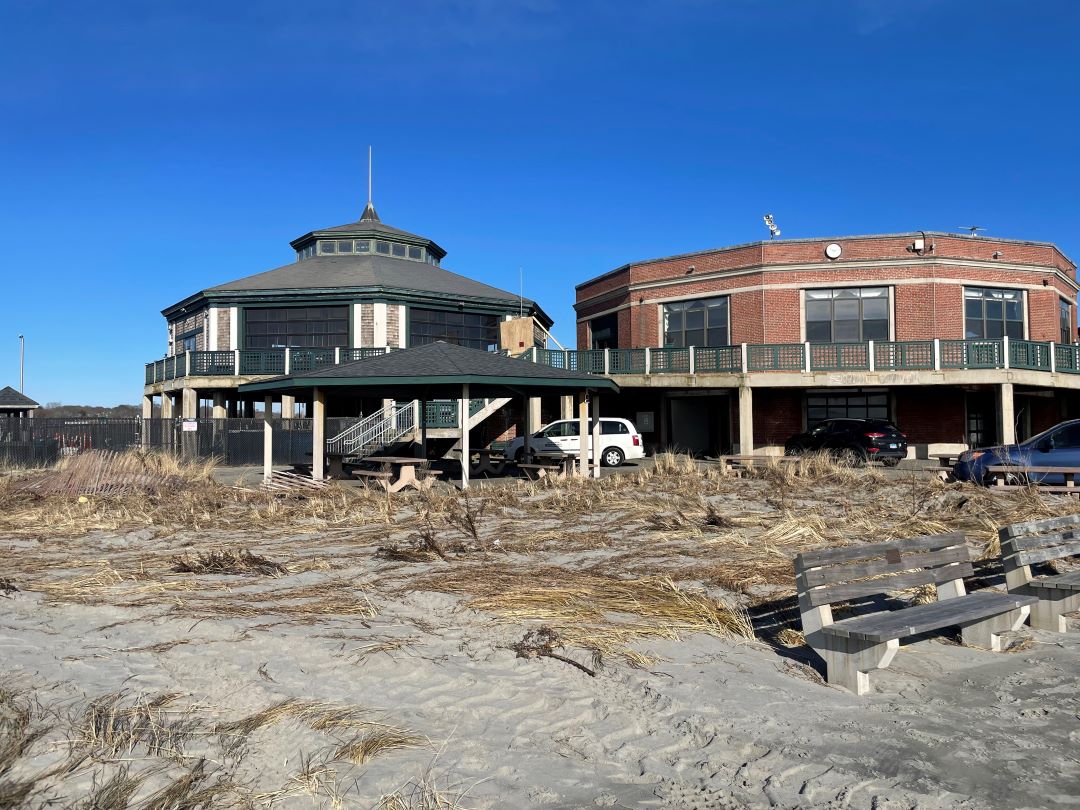Regional Transportation Program Cuts Emissions Through Fees
May 22, 2019
PROVIDENCE — As Rhode Island moves ahead with renewable-energy initiatives such as offshore wind, planners are moving quickly on a regional initiative to cut greenhouse gases from their biggest sources: cars and trucks.
The state’s transportation sector accounts for 40 percent of climate emissions, according to the Office of Energy Resources. Electricity consumption accounts for 20 percent, and 19 percent comes from heating buildings.
Through the Transportation & Climate Initiative (TCI), Rhode Island may join 12 states and the District of Columbia in imposing a fee on fuels entering the state to pay for low-emission transportation options such as biking, public transit, and incentives for owning electric vehicles.
The program is modeled on the existing nine-state Regional Greenhouse Gas Initiative, of which Rhode Island, Massachusetts, and Connecticut are members. The program requires fossil-fuel power plants to reduce their carbon dioxide emissions or buy allowances for each ton of carbon emitted. The money from the purchase of the credits eventually works its way back to the state to pay for energy-efficiency and renewable-energy projects.
The details are still being worked out for the TCI program, but as it stands all gasoline and diesel fuel entering the state would be required to buy credits based on each ton of CO2 emitted. That fee could be assessed during shipping, distribution, or at the pump. Initially, at least, jet fuel will be exempt from the program, as gasoline and diesel fuel account for some 80 percent of transportation emissions in Rhode Island.
It’s been estimated that the program’s cost to the consumer will be about 10 cents per gallon of fuel.
Several things must happen before the program is adopted. Principally, the concept must be approved by the General Assembly and by other states, especially the high-population states with major shipping hubs such as New York, Pennsylvania, and Virginia.
Terry Gray, assistant director at the Rhode Island Department of Environmental Management (DEM) and a state representative for TCI, said so far there is bipartisan support from Republican governors in Massachusetts, Maryland, and Vermont.
The program has an aggressive approval schedule, with policy crunching taking place this fall and a finished plan completed in December. Member states will be asked to have enabling legislation approved by their state legislatures in 2020. If passed, the carbon-fee system would be in place and operating by 2021 and paying proceeds to states by 2022.
Janet Coit, DEM director and a state representative for TCI, said the legislation will require that proceeds don’t pay for fixing potholes and other unrelated expenses.
“The whole point of this is to invest the emissions (proceeds) back into things that reduce greenhouse-gas emissions for the transportation sector,” Coit said at the May 15 meeting of the state Executive Climate Change Coordinating Council.
Gray noted that as gasoline and diesel-fuel use decline so will the tax revenue that funds much of the Department of Transportation’s budget.
“As we meet our greenhouse-gas reduction goals, gasoline is going to go away,” Gray said. “So there is a transition that has to go on there and that has to be carefully thought through.”
TCI member states have held several meetings and conference calls, and many were open to the public. Public participation is welcome. A webinar is scheduled for May 23.
Gasoline and oil distributors are part for the discussions and, so far, haven’t objected to the idea.
The participating TCI states are Connecticut, Delaware, Maine, Maryland, Massachusetts, New Hampshire, New Jersey, New York, Pennsylvania, Rhode Island, Vermont, and Virginia.
Categories
Join the Discussion
View CommentsRecent Comments
Leave a Reply
Your support keeps our reporters on the environmental beat.
Reader support is at the core of our nonprofit news model. Together, we can keep the environment in the headlines.
We use cookies to improve your experience and deliver personalized content. View Cookie Settings




Its good to see this process getting started, but I think a lot more will have to be done to actually reduce transportation emissions.
Its hard to see how a 10 cent increase in gas prices, lost in the noise of up and down gas price variability, will do much to alter behavior such as driving less or buying an expensive electric vehicle. The incentive to drive is partly thru the dispersed land use made worse by companies like Citizens Bank, Neighborhood health Plan moving out of the metro area, relatively low marginal cost of driving once the vehicle is purchased, insurance, taxes paid, and almost universally subsidized "free" parking, plus the very limited infrastructure for biking, the social stigma and lack of incentives for taking a bus. Further the state leaders priority seems to be to accommodate more driving (full rebuild of the 6-10 connector, widening I-95 northbound in central Providence, eliminating property taxes for vehicle owners) while proposing cuts in bike and pedestrian programs and doing little to reverse the significant decline in bus ridership or our low commute by transit rate. So I hope the TCI process, plus the transit and bike master plans being developed, will come up with an alternative vision more in tune with our climate, land use, and health needs.
So basically it is just another tax that the end users (including the poor) with have to pay so the politicians can fund their pet projects. It will do absolutely nothing to help the environment but it will make all the tree huggers very happy to see the working poor people have to pay more to get to work.